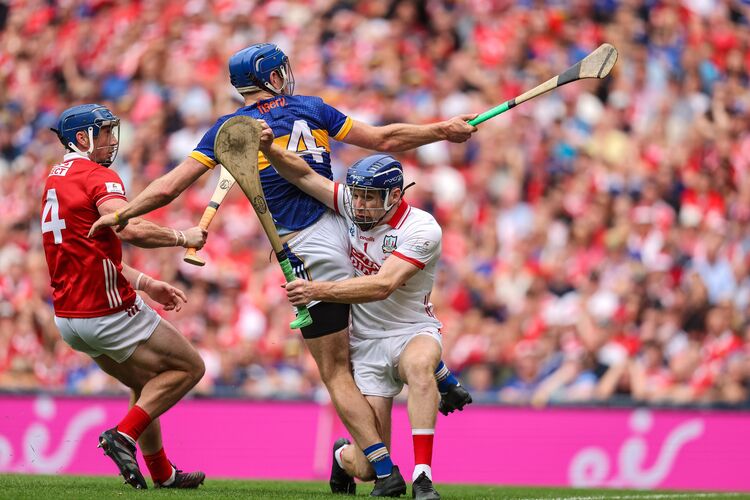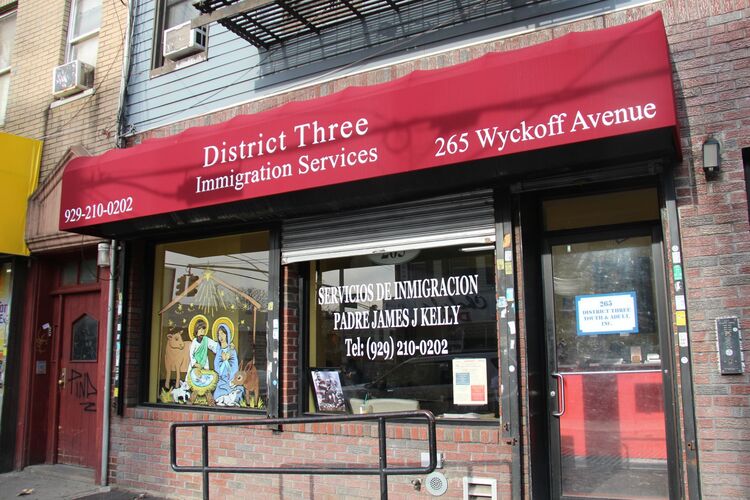[caption id="attachment_67678" align="aligncenter" width="600" caption="From left: David Tudor, Martin McCann, Robert Sheehan and Ben Barnes in "Killing Bono.""]
Killing Bono • Starring Ben Barnes and Martin McCann • Directed by Nick Hamm • 114 min
The Dublin music scene of the late 1970s was an exciting place to be. An average night on the town offered bands as diverse as DC Nein, The Atrix, Virgin Prunes, The Vipers, Fit Kilkenny and The Remoulds, Radiators from Space, Rocky De Valera and The Gravediggers, and The Boomtown Rats. Some of them made the right noises to achieve local and international success, some disappeared without trace.
But from this three-chord thicket of no-hopers, might-have-beens and once-weres emerged a single band that still strides like a colossus across the stadium circuit of this planet. A foursome of inspired and determined youngsters from Dublin's northside, they started out as The Hype, but soon changed their name to the marginally less silly U2. Hard work, talent and ambition, allied with astute management and lucky breaks, landed the band at the pinnacle of success worldwide. But what of the forgotten bands they left in their wake?
Nick Hamm's rocking comedy "Killing Bono" tracks the downward spiral of one such outfit, led by an aspiring rock star who never made it, Neil McCormick. It was McCormick's misfortune to be in the same class in school at Mount Temple as Bono and The Edge, when they were plain old Paul and Dave, cocky teenagers trying to start a band. McCormick formed his own group at the same time, played the same venues, and shared the same ambitions as his much cooler classmates, but never got the right break to hit the big-time.
A sojourn in London brought him within reach of record deals that always fell through at the last minute, while his old pal Bono was playing Live Aid, jamming with BB King and Johnny Cash, and saving the planet from itself. Reconciled to the fact that his music would never set the world on fire, McCormick penned a self-deprecating account of his near-misses, titled "I Was Bono's Doppelganger," and this autobiography is the basis of Hamms' film.
"Killing Bono" was written by Ian La Frenais and Dick Clement, scriptwriters for "The Commitments," so they know their way around a Dublin let's-form-a-band movie. By his own admission, McCormick's tapered-off rock career has no third act ("because it's real life"), so Clement and LaFrenais create one for him by contriving a near-fatal encounter at the film's finale with the titular elfin rock star, at the release party for "The Joshua Tree" album.
Along the way, McCormick's story is amped up to feature dubious funding from a Dublin gangster (a hilarious but chilling Stanley Townsend), and a recurring what-if thread that Neil's brother Ivan (Robert Sheehan from "The Misfits") might have been U2's second guitarist, had their lives taken a slightly different course.
"Killing Bono" is a sporadically hilarious account of how to do everything wrong in the rock business, and like McCormick's own musical career, the film veers awkwardly between genres, never quite settling as a comedy or a drama. Dubliners will find that the film hits the right notes in its depiction of the punk scene of the time, but will be perplexed by the scenery, as it is shot mostly in Belfast. Neil McCormick is played by the much handsomer Ben Barnes, and Bono, in mullet, ponytail and hat versions, is played in a note-perfect mash-up of pomposity and self-deprecation by Belfast actor Martin McCann.
Pete Postlethwaite, always worth the price of admission, plays a poignant cameo as the McCormick brother's London landlord, in what would be his last screen role. Gravely ill at the time of the shoot, he succumbed to cancer before the film was completed.
"Killing Bono" opens in New York on Friday November 4 at Loews Village 7 cinema, at 3rd Avenue and East 11th Street in Manhattan.







